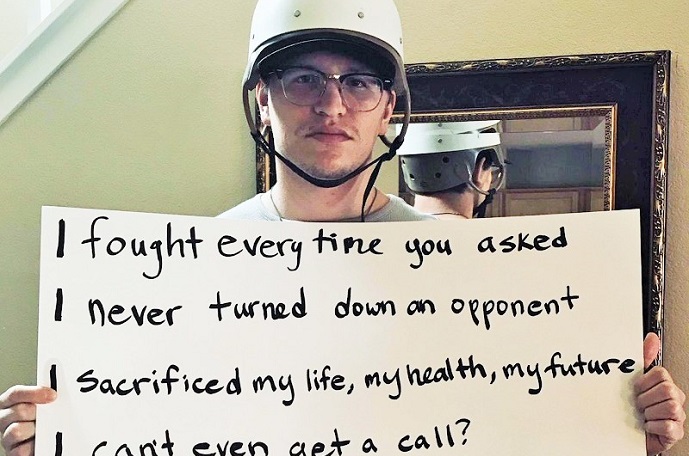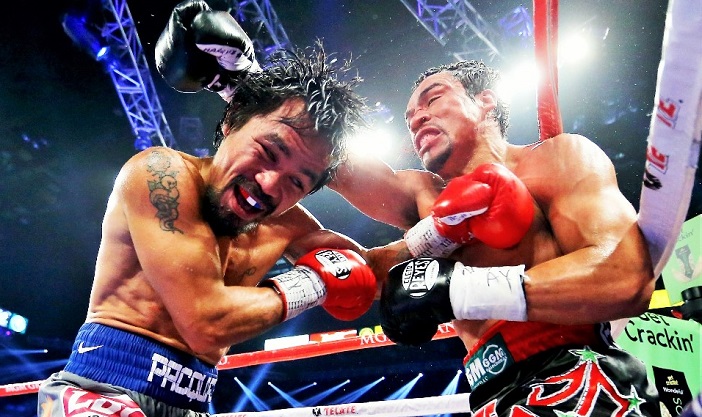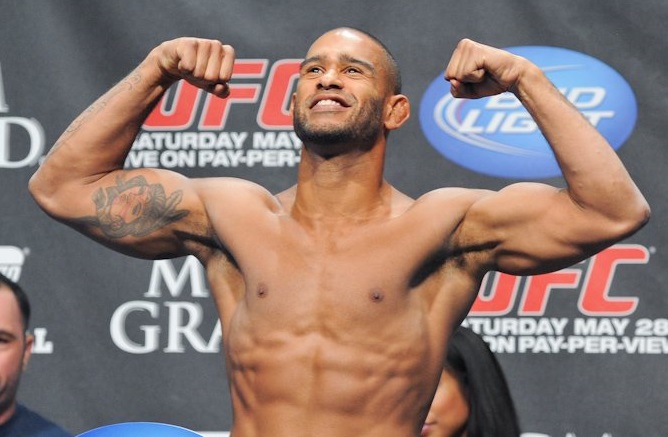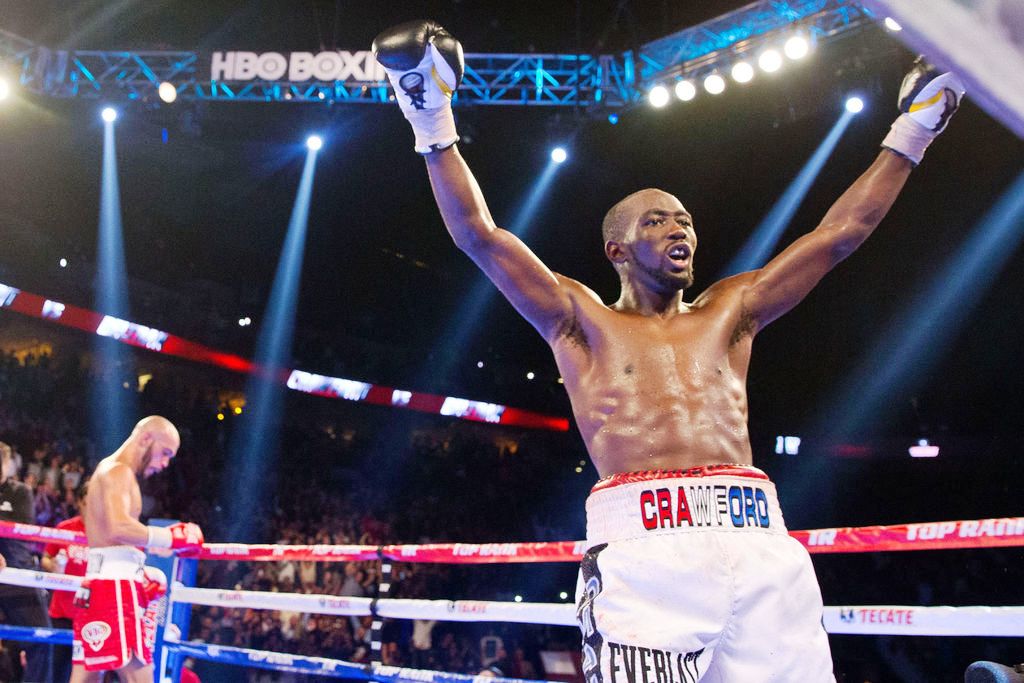Daniel Franco: Always A Fighter
This time last year, Daniel “Twitch” Franco was eyeing an ascent to contender status in a competitive featherweight division. Backed by fledgling promoter Roc Nation Sports, the affable Franco had the makings of a marketable world champion. He was the kind of articulate and talented pugilist who could make serious inroads with California’s passionate fight fans. Although Franco is still many of these things — talented, articulate, and affable to be sure — what he isn’t anymore is a boxer. But after what he’s been through since June 10, 2017, it’s clear that the young man from Riverside is, and always will be, a fighter.
But before Franco’s fateful bout against Jose Haro, he stumbled in an upset loss to veteran trial horse Christopher Martin, who overcame a knockdown to halt Franco in the third round. A virtually anonymous confidence-boosting win followed, which set Franco up to face Haro for the USBA featherweight title on a CBS Sports Network main event. What followed was a nightmare for all involved: an eighth-round knockout loss that sent Franco to hospital with multiple brain bleeds which required immediate surgery and forced doctors to put him in a medically induced coma for two weeks.
At this juncture, after all that’s happened to Daniel Franco, the actual particulars of the Haro bout seem both distant and irrelevant, not least because even after he’d re-watched the match during rehabilitation in Nebraska, Franco had zero recollection of what had transpired. This included no semblance of what had occurred in Iowa, which is where the first phase of his recovery took place.
“Physically, I’m doing terrible,” Franco admitted when I spoke with him before Christmas. “I’m not doing a really good job because I’m not able to train. I can’t go running. I can’t hit the bag. I can’t do push ups or sit ups, or anything like that. Although in a way, I’m doing alright. I still have coordination, but I’m not really able to exercise like I usually do. And mentally, I’m getting really bored.”
When we spoke, Franco was convalescing at home and had put his initial phase of rehab — the agony of learning to properly walk and speak again, for example — behind him. Understandably, a certain degree of frustration underlined the conversation of what he could and couldn’t do, a frustration stemming from the now distant memories of being an elite-level athlete just entering his physical prime. Confined for the most part to his family home, Franco admitted to constantly cleaning and rearranging his room in order to stave off boredom. “I feel like I’m stuck right now,” he candidly admitted.
Regarding the future, a looming December surgery was all Daniel Franco could focus on when we spoke in November. Fortunately, despite some swelling at the incision site that necessitated a follow-up appointment after that December 1 operation, the procedure was a success. Franco will again meet with his neurosurgeon in the coming weeks, but he’s on the precipice of being able to resume a more active lifestyle. This recent bout of positive news seems to have Franco brimming, but the road to get to a point where afternoons can be spent painting and the possibility of matriculating to college is now within reach, was arduous, to say the least.
Simply put, Daniel Franco, given the severity of his injury and complexity of his surgeries, is lucky to be alive and not facing major life-limiting disabilities. And yet, he actually regained the ability to walk after only two weeks of physical therapy after being told that it would take him a year. His strength, conditioning, and physical preparedness for the Haro fight played an instrumental role in saving, and preserving, his life. Once the routine of guided physical rehabilitation — which took place three days per week when Franco was in Nebraska — was no longer necessary, the notion of progress became less immediately goal-oriented and thus more difficult to evaluate and control. This forced Franco to reflect.
“I’ve been thinking about my career and different paths in my life that I should have taken or shouldn’t have taken,” Franco says. “I feel like I’m actually really blessed to be able to walk away from such a dangerous sport and such a dangerous injury. I nearly died. I was really close to dying, but I made it through. Being able to see the pictures when I was at the peak of my injury, that by itself makes me so grateful for every day that I’m alive, for every second that I’m breathing.”
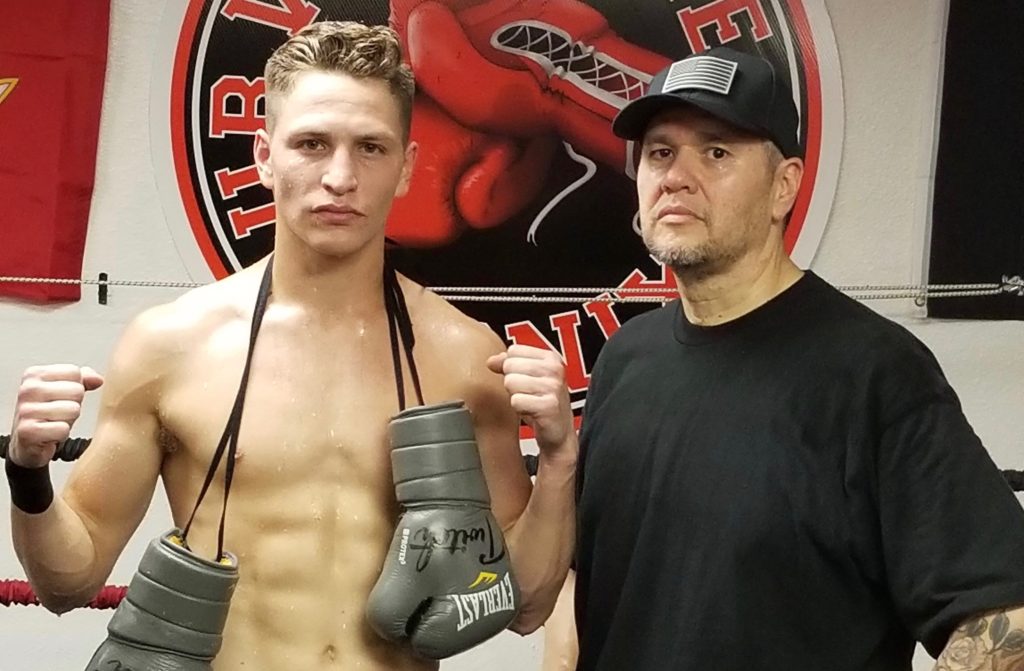
Rehabilitation from the kind of injury Daniel Franco suffered is both grueling and monotonous. But when speaking with Franco about his time in hospital, the circumstances surrounding one memory in particular stand out. It was when Franco decided to watch his fateful fight against Haro for the first time, after his girlfriend had brought Daniel’s dog to the hospital to visit him. Franco recalls his dog’s noticeably gentle countenance, as if the animal sensed the severity of his master’s injury and the gravity of the situation. This connection to Franco’s former life, and his first palpable post-surgery memory, eventually made him curious to see exactly what had transpired in the ring in the last fight of his career.
“I remember when my girlfriend’s parents brought over my dog — one of my friends was there as well — everyone went out to eat and I asked them, ‘Can I see the fight?’ in my whisper voice, but they didn’t want me to see it. That was when I remembered my password to my phone for the first time. I finally got into my phone and YouTubed the fight. I watched a short video of it.”

It was as if Daniel Franco was seeing it all for the first time. He remembered precisely nothing from the fight, stating that it was if the knockout, or the bout itself, from rounds one through eight, had never even happened to him. And yet, the fact that he sought it out, and that he was willing to face what had happened to him directly, speaks to a mindset that those who haven’t fought or faced such tribulations cannot comprehend. Franco was bravely piecing fragments of his life together in order to move on.
Before arriving at the part of this story where Franco was able to appreciate all the positives in his life and visualize an exciting future beyond boxing, there’s a sinister element that bears mentioning. Roc Nation Sports, Daniel Franco’s former promoter, has been completely absent during this entire nightmare, failing to provide even a modicum of moral support. Their callousness and cowardice is startling, even by boxing’s paltry standards of human decency.
“Once I was able to think,” Franco muses, “I wondered, ‘Where’s everybody at? Where’s my promoter?’ They hadn’t called, they haven’t said anything. Once I was able to think clearer, I thought I should have at least gotten a call.”
…:::CHECKOUT MY GOFUNDME PAGE IN MY BIO::::.. Everyone is on your side until it all falls down. #FightROCNATION #fuckrocnation #excusemylanguage #boxing @espn @tmz_tv @therecoverylab @bodygoodsnutrition @rocnationsports @everlast @floydmayweather @adrianbroner @davalostequila @budweiser @geico @jaybirdheadphone @mgmgrand @puma @tequilacazadores @sonicdrivein @espn @hollywoodunlocked
This original post, in which Daniel Franco justifiably lambasted Roc Nation for their lack of even perfunctory support, appeared on multiple social media platforms. Once the post went viral and precipitated renewed interest in Franco’s story and his GoFundMe campaign to help cover grotesque hospital bills, Roc Nation did contact the fighter they once thought could win them a world title. Their chief intention for doing so, however, was even more despicable than one might have imagined.
Roc Nation informed Franco that he simply needed to take down his posts and once he had done so they would contact him within 72 hours. The details regarding the promised follow-up communiqué were conveniently sidestepped, and Franco recalls waiting for over a week without hearing anything. He soon realized no call was coming, but he did notice a particularly galling change to the branding-obsessed promoter’s website. “On the Roc Nation website, I’m no longer there. So they had time to do that. But they didn’t have time to call me.”
Daniel Franco wasn’t expecting a handout from Roc Nation. He was wasn’t expecting them to cover his medical costs, nor was he angling for any other type of miraculous intervention. After all, the miraculous had already occurred. What he wanted, simply, was a show of humanity, of decency, of respect — and maybe a shoutout for his GoFundMe page, which, no one can argue, is the least Roc Nation could have done. To Franco’s knowledge, there were no provisions in his contract with Roc Nation about the fallout of a life-altering injury, and this was never discussed during negotiations. But regardless of Roc Nation’s legal obligations to Franco, their radio silence as one of their own boxers has fought and clawed for his life is a mark that should brand and shame them forever.
They wanted me to take down my post. I did as I was told. @rocnationsports said they would call me within 72 hours. It’s been a whole week! Where is my phone call?! They only called to tell me to take down my post, never did I hear that they’re glad I’m alive. #FightROCNATION #boxing #michaelyormark #dinoduva #jayz #DanielTwitch The photo is from November of last year. ..:::#*PLEASE REPOST*#:::.. @nbcsports @tmz_tv @hboboxing REPOST AND TAG ME! I’ll follow back!
Daniel Franco’s “underground movement” against Roc Nation has gathered steam, but it’s hardly his sole focus. The possibility of returning to school to study neuropsychology is within reach, and Franco hopes to eventually start teaching again at his father Al’s Warzone Boxing Club. Franco wants to stay connected to boxing and help make the sport better by educating fighters and fans. He believes boxers should have better insurance and care in the event of injuries, and that regulations need to be more cohesive and robust, as opposed to the flippant rules that often seem arbitrary, if not contradictory, on a commission by commission basis.
Franco also believes that promoters need to take the lead in providing contingencies for their fighters, such as health insurance. Boxing is inherently dangerous, and Franco, prior to his injury, knew this on an intellectual level. But that’s often not enough when optimism abounds at the outset of a promising career. “I knew that people die every year,” Franco says. “But I was really good. I was really good, and I just never expected that to happen.”
As gifted as Franco was, the worst did occur: an unfathomable ordeal that has left the Franco family in massive debt and forced Daniel to turn his back on years of hard work and seek an entirely new path in life. Hardship, however, has bred resilience and optimism. You can see it in Franco’s paintings, which he views as “a time for me to meditate and forget all that’s been going on in my life: the bills, the future, the injury itself. I forget all struggles. I get to just be in the moment and create a different reality.”
It’s been a long LONG time since i’ve been able to paint. A quick session today…maybe some more complexity further down the line. This is where I get to let myself go and dive deep into emotion and understanding. The deepest layers of my soul come out when I am painting and listening to music. This one has been long overdue. I had this painting sitting halfway done in my garage for over a year and a half. Today, I’m one step closer to finishing it. I almost died before I was even halfway done. With my will to live and all I’ve gone through, it’s amazing to touch a paintbrush to canvas once again. #heart #art
It would be very easy for Daniel Franco to feel sorry for himself, to still wonder, “Why me?” He could wallow in the loss of a boxing career and the fame, riches, and glory that might have been his. And for a time, he did. But that necessary part of the acceptance process is behind him, and because of that, Franco has gained an admirable serenity grounded in pragmatism and hope.
“It took me halfway through my recovery to see the good that’s in what happened,” Franco admits. “There’s nothing I can do about it. If I had a second chance, I would totally change it and I wouldn’t want to go through so much because of all the stress I put on my parents and all the money issues. But I’m living each day to the full, and enjoying each day that I have with my family, my pets, my girlfriend — and everybody around me. I’m living it to the fullest.” — Zachary Alapi

